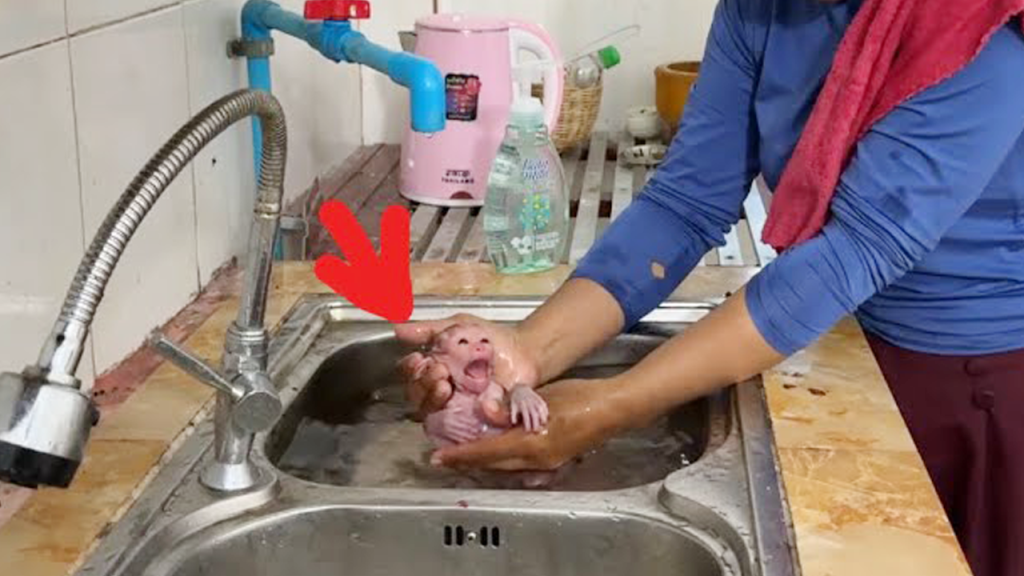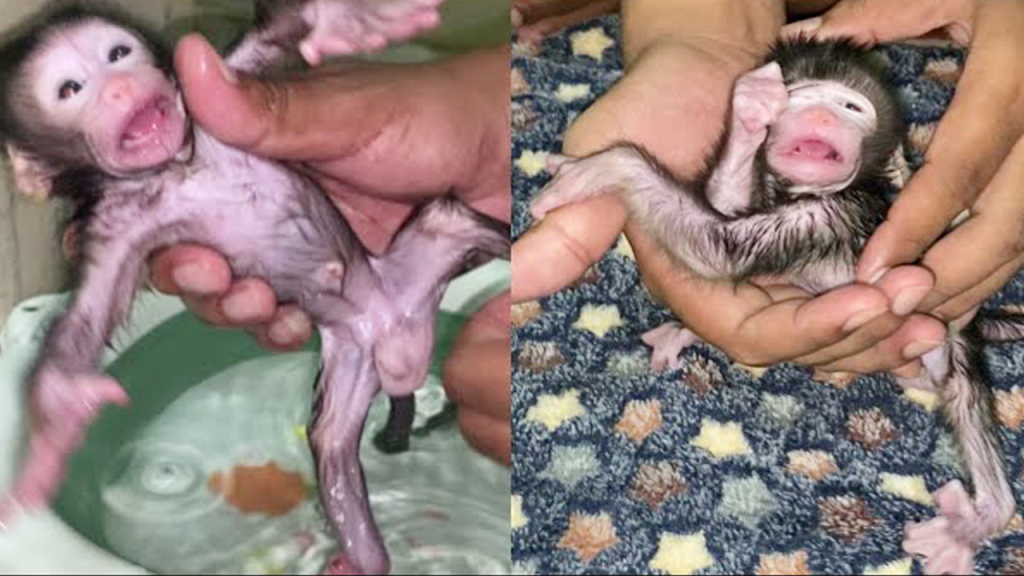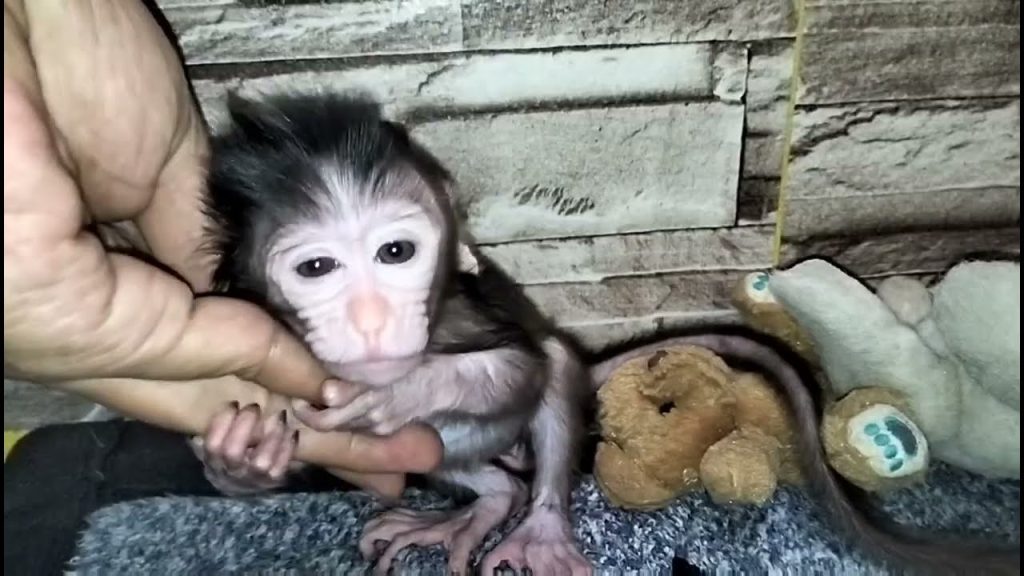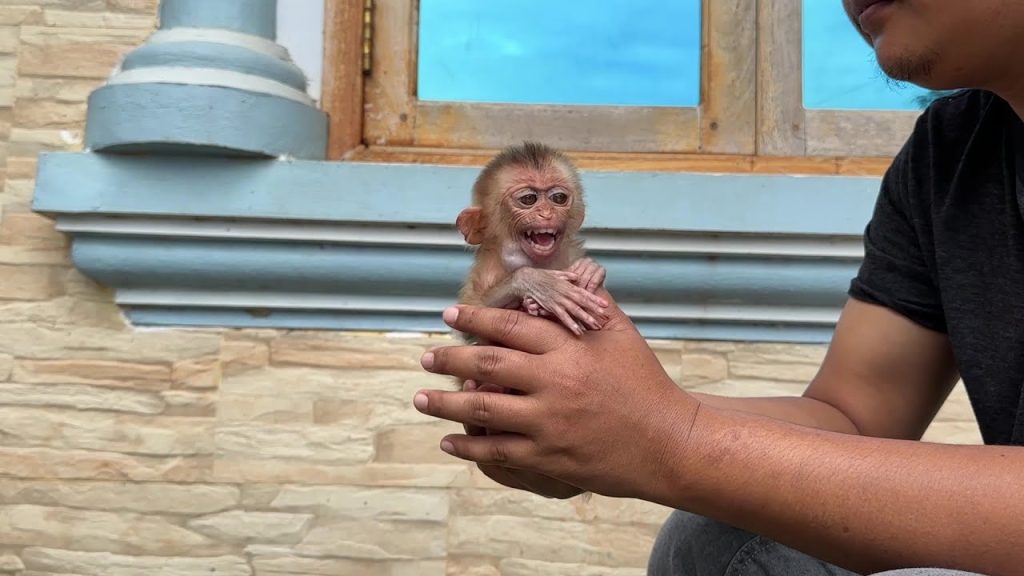
A newborn baby monkey who is terrified of water is reacting in a way that is completely natural for an infant with no understanding of the world around him. At his age, every new sensation feels overwhelming—new sounds, new textures, new temperatures, and especially water. When he sees water for the first time, he freezes, his tiny body trembling, eyes wide with fear as he tries to understand what this strange, moving thing is.
Newborn monkeys rely completely on their mothers for guidance. A mother would typically hold her baby close during grooming or bathing, allowing the infant to feel safe while learning about water slowly. But when a baby has no mother to guide him, even the smallest drop of water can feel threatening. A simple splash might make him flinch, cling to anything nearby, or cry out in fear. His instinct tells him that unfamiliar sensations could be dangerous, and without a parent’s reassurance, he doesn’t know how to respond.
When caretakers introduce him to water, they must do so gently. Warm water, slow movements, and quiet voices help reduce his panic. Instead of placing him directly into a bowl or basin, it’s better to let him touch the water with just a hand or foot first. This small introduction helps him understand that water isn’t harmful. But even then, he might pull back quickly, ears twitching, eyes darting around as he tries to decide whether it is safe.
During his first proper wash, he may cry loudly or try to cling to the caretaker’s arm for comfort. His body stiffens, his breathing becomes fast, and he shakes as though the whole world is closing in. Caretakers must continue slowly—wetting only small parts of his body at a time, keeping him wrapped in a soft cloth, and whispering soothing sounds. Over time, he realizes that nothing bad is happening. The warm water might even begin to feel soothing against his skin, especially if he has dirt, irritation, or dried milk around his fur.
After the bath, once the towel wraps around his tiny frame, he feels safe again. The warmth, the softness, and the gentle drying movements calm him. His eyes relax, his breathing slows, and he may even rest his head on a caretaker’s chest, exhausted but comforted.
With repeated gentle experiences, the newborn slowly learns that water isn’t something to fear but something that can help him feel clean, warm, and cared for. Over time, his fear will fade, replaced by trust—and eventually, even enjoyment.


